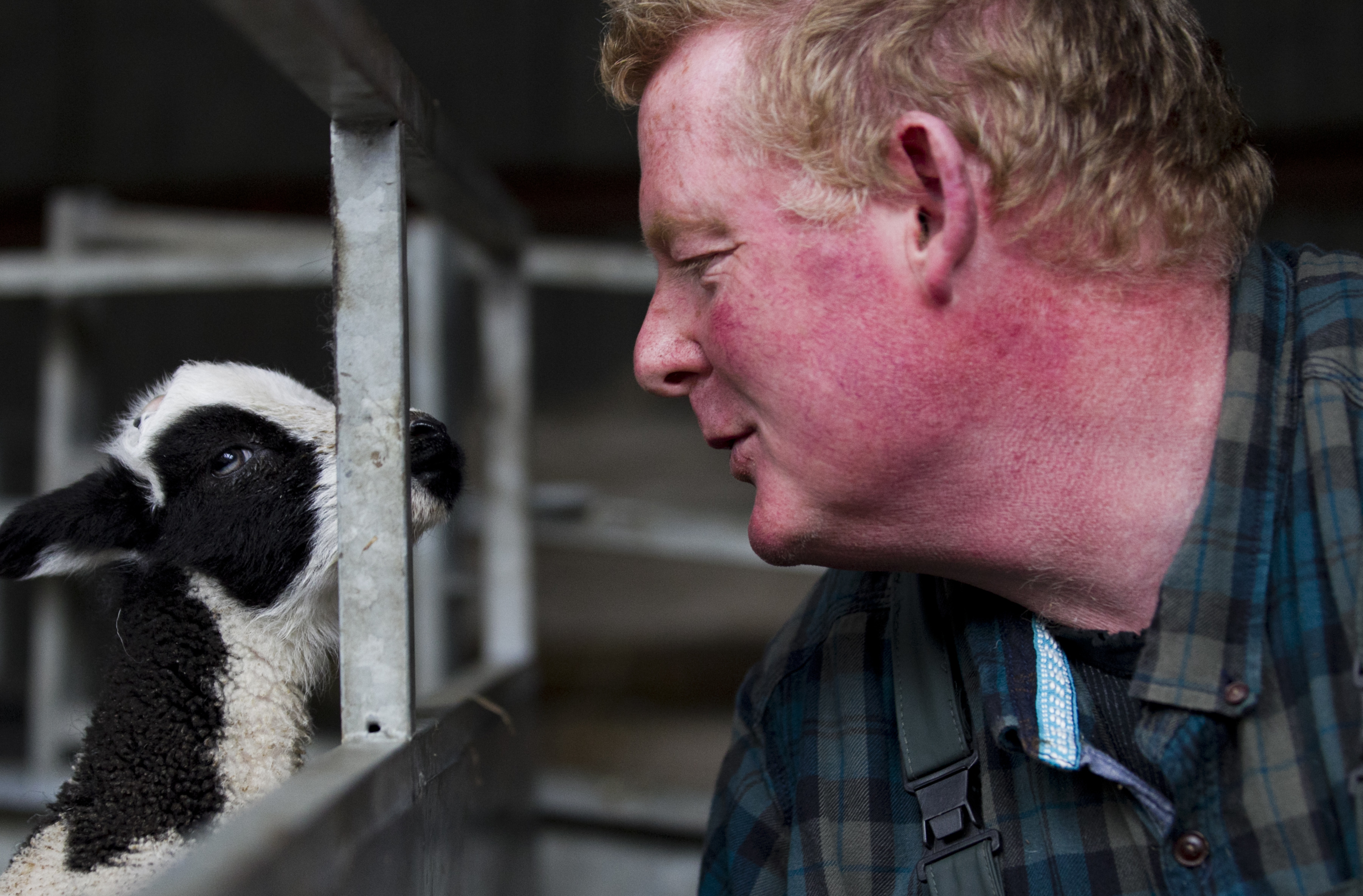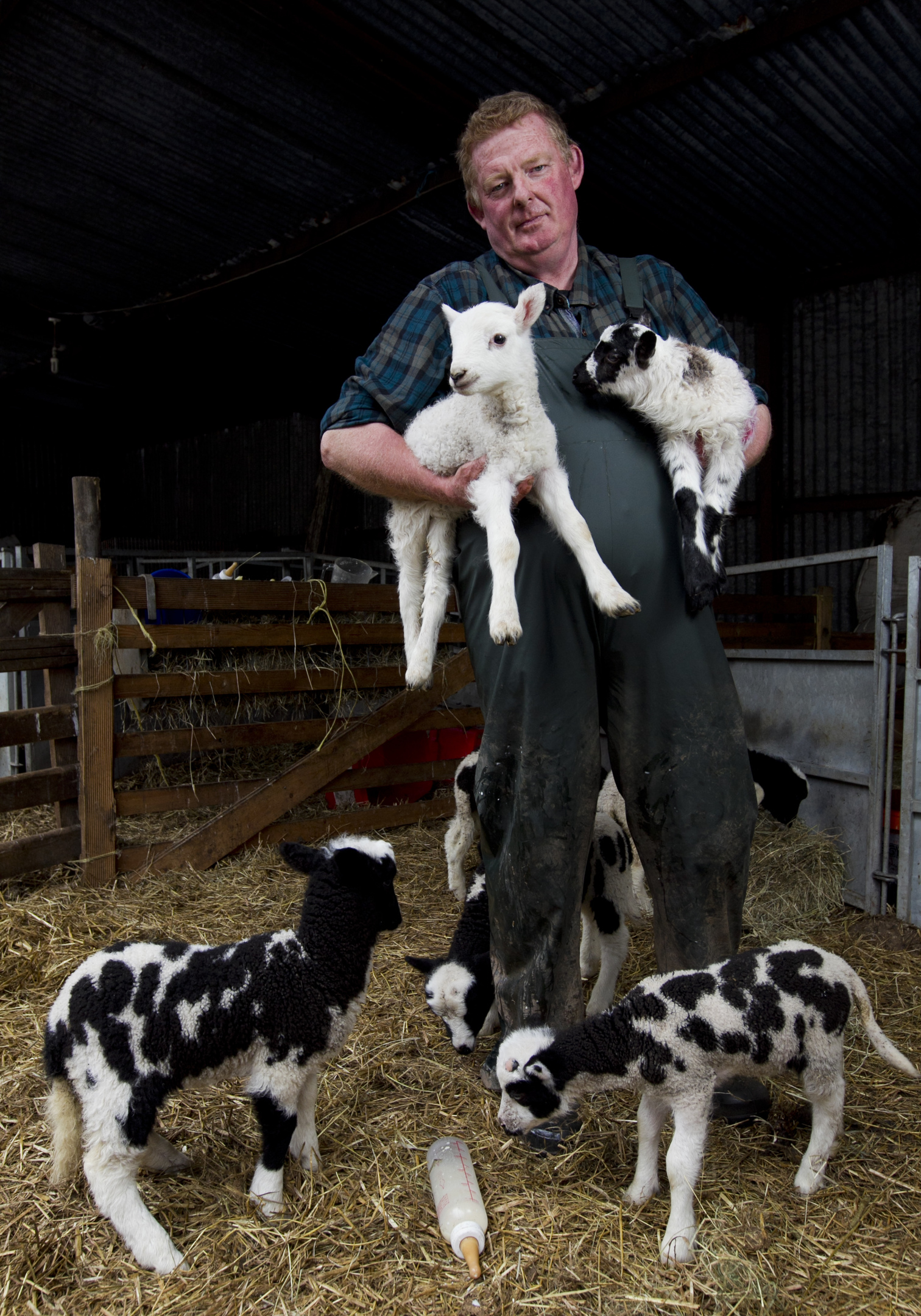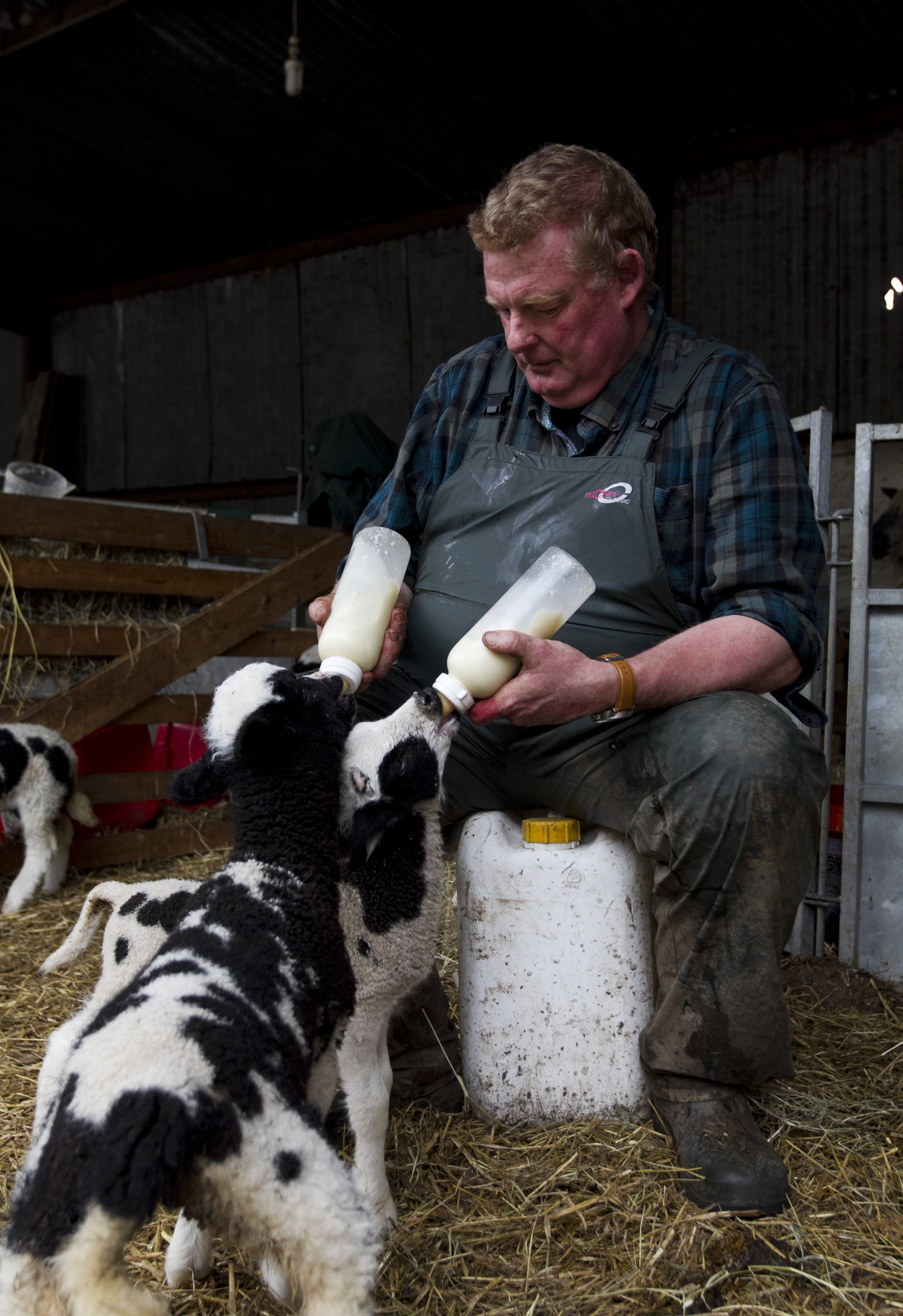
FOR shepherd Kenny Dickson, this is the busiest time of the year.
Working from before dawn to darkness, tending to his flock, delivering hundreds of lambs and bottle-feeding orphans.
Lambs gambolling in the fields are a welcome sign of spring but Kenny, who has worked on Culcreuch Hill Farm in Fintry for 18 years, says the farming industry is still reeling from the impact of the weather front that covered Scotland with snow two months ago.
“It has been very tough,” Kenny said. “I couldn’t estimate how much it has cost.
“When the Beast From The East came, a lot of sheep got trapped up on the high hills, and some died in snowdrifts.
“It was just about impossible to work – the drifts were so high. In the village of Fintry, there were drifts 12ft deep.
“Having to dig down to the sheep, the whole thing was unmanageable and it came at the worst possible time.
“We probably lost about 40 sheep.”
Since the lambing season began a month ago, Kenny, 50, said around 1200 lambs have arrived – and there are still 800 more sheep waiting to deliver.
The farm has Jacob sheep, a breed with a distinctive black and white colour, and believed to the oldest in the world.
The impact of the winter storms has lasted long after the snow melted away.
When the lambing season got under way, many of the sheep lacked nutrition due to being stuck on the hill with no grass to eat which resulted in smaller lambs and a lack of milk.
Even for the sheep that Kenny did manage to get additional food to, there have been problems, as giving pregnant sheep concentrated animal feed, rather than grass, can result in bigger lambs which are more difficult to deliver.
Kenny added that a bad summer last year meant foodstuffs such as hay and turnips were in short supply, making them more expensive.
“There is a whole series of issues that have come from the weather problems,” he said.
“This whole winter has been harsh. At the moment, I have never seen as little grass growing in the countryside – we are heading towards May and the countryside is only just beginning to green up.
“So there is a massive shortage of grass and winter feed.”
He said that dealing with Scotland’s unpredictable weather is frustrating.
“It is devastating as you have spent your year with the sheep, you have got them into good condition and everything looks fine,” he said.
“Then the bad weather comes and your sheep are melting in front of your eyes. That is very hard to deal with.
“You feel for the sheep, they are doing their best. Some of them gave birth in that real bad snow and that little lamb drops out of a warm oven into an ice cold surrounding.”
Last week the Scottish Government announced a package of support to help farms affected by the weather, which includes a £250,000 fund to help cover the costs of retrieving dead animals, and plans to set up discussions with commercial feed companies on how shortages can be addressed.
Kenny currently works from 5am until darkness – an endless round of checking the animals, delivering lambs and feeding his flock.
After lambing season, there is no respite. The next stage is to worm and treat the sheep for ticks, before the shearing season begins.
Kenny said that, during the bleakest weather, it can be difficult to keep going.
“Sometimes when I look out and the snow is belting down and it’s freezing cold, you look out and think, ‘I would be better doing anything else’,” he said.
But he added: “When it is a sunny day – you see the little lambs skipping and chasing each other around, you forget about the bad times.
“The highlight is to see a ewe having her lambs. That is what you do the job for, the satisfaction of seeing new life.
“Then you think it’s a great job.”

Enjoy the convenience of having The Sunday Post delivered as a digital ePaper straight to your smartphone, tablet or computer.
Subscribe for only £5.49 a month and enjoy all the benefits of the printed paper as a digital replica.
Subscribe
